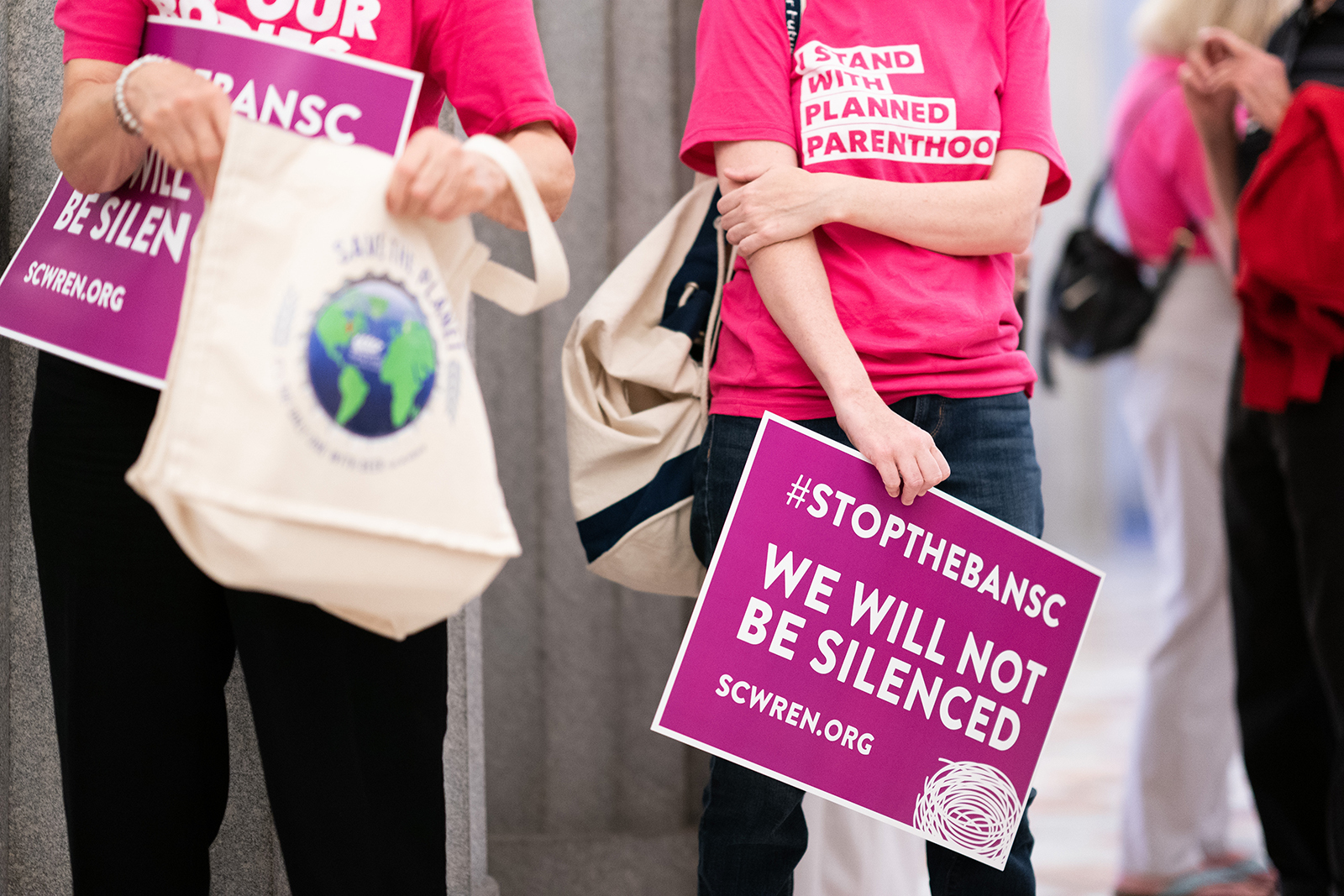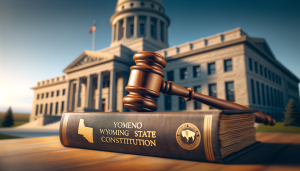South Carolina Supreme Court rules state’s contested 6-week abortion ban is constitutional, can go into effect

The South Carolina Supreme Court decided Wednesday that the new state law banning abortions after six weeks is constitutional. This allows the law to take effect.
The ruling was made after a new judge was appointed and the General Assembly revised a six-week old law. The previous court ruling earlier this year ruled against a different version a six-week ban on abortion, saying that it violated the constitutional right of privacy of women.
In June, the S.C. Supreme Court – five male justices – heard oral arguments on whether a six week abortion ban reinstated in South Carolina violates women’s constitutional rights to privacy. The state’s abortion law, which allowed for abortions up to 20 weeks, was in effect before Wednesday’s ruling, making South Carolina a rare abortion destination in Southeast.
South Carolina’s law prohibits abortions if cardiac activity is detected. This usually occurs around six weeks of pregnancy. The six-week abortion ban is criticized by those who claim that most women are unaware of their pregnancy at this point.
|
The six-week rule has four exceptions: rape or incest during the first 12 weeks of pregnancy; fatal fetal abnormalities; and cases where the mother’s safety is at risk.
Justice John Kittredge, writing for the Supreme Court’s majority, said that the General Assembly had crafted a bill that balanced the rights between the mother and unborn child.
Kittredge wrote: “The legislature made a policy decision that, after a certain stage in pregnancy, the woman’s right to autonomy and privacy did not outweigh her unborn child’s right to life.”
Justice John Few, the same Justice who voted against the previous law on six-weeks, changed his vote.
He cited the changes made by General Assembly in order to ensure that access to contraception is available, including emergency contraception known as “Plan B.”
Few, in a similar opinion, wrote that “the most significant change between the 2021 Act and the 2023 Act is a group of changes designed to promote active family planning by promoting the concept of choice.” The 2023 Act provides couples with insured access to contraceptives to help them avoid unwanted pregnancy.
Few also cited arguments from the state Attorney General’s Office, which said that a woman could learn if she was pregnant before the six week mark by using a home pregnancy testing and can get a blood test for confirmation.
In its Dobbs ruling of 2022, the U.S. Supreme Court reversed Roe v. Wade and made it possible to limit the right to abortion. The Dobbs decision allowed each state to decide if abortion is legal in their state.
The Republican-led General Assembly changed the composition of South Carolina’s Supreme Court to increase the chances that the new law, which stipulates a six-week work week, would be upheld.
Former Justice Kaye Hearn wrote the S.C. Supreme Court decision in January 2023 that struck down the six-week 2021 law. Hearn reached mandatory retirement age of 72 this year. Hearn was the sole woman on the State Supreme Court and was replaced by Justice Gary Hill.
After Hill was elected by the General Assembly the Republican legislators were confident that they would receive a vote of 4-to-1 to support the revised six-weeks law.
In his dissent against Wednesday’s decision, Chief Justice Donald Beatty compared the definitions and text of the law of 2023 with the law of 2021 to show that they were similar, if not identical.
Beatty argued also that pregnancy is calculated from the last menstrual cycle of a woman, not six weeks. This means a woman could only be pregnant for four weeks, instead of six.
Beatty wrote that many women don’t even realize they’re pregnant until they have a late menstrual period (which could be as much as five weeks after the normal cycle).
According to a poll, the decision seems to be against the public’s sentiment.
In a Winthrop University poll released in May, 37% of South Carolinians favored a ban on abortions that occur after six weeks. 43% opposed such a prohibition.
A higher percentage of respondents supported exceptions to the ban.
In the poll, 81% said they supported a special exception for mothers. 78% agreed that abortions should be permitted if a pregnancy is the result of rape. And 57% agreed that abortions should be allowed when the baby will be born with severe health or disability problems.
Gov. Henry McMaster, the man who signed the six-week law at a small ceremony held in May, applauded the decision of the court.
McMaster, in a Wednesday statement, said that “the Supreme Court’s decision marks an historic moment in the history of our state and is the culmination years of hardwork and determination of so many people in our State to ensure the sanctity is protected.” With this victory, South Carolina is able to protect the lives of unborn children. It also reaffirms its place as one the most prolife states in America.
The conservative Palmetto Family Council, a conservative policy group in South Carolina, called the decision of the court the “most monumental victory for life” that South Carolina has ever seen.
Mitch Prosser, Interim President of the Palmetto Family Council said: “This law not only protects the lives of unborn babies but also guarantees that expectant mothers will receive the necessary care in the event they or their child are facing a life-threatening situation.” We will celebrate this victory, but it is not over yet. Palmetto Family is committed to making abortion not only illegal but also unthinkable across South Carolina and the United States.
Planned Parenthood South Atlantic said that it would keep its South Carolina clinics open to perform abortions in accordance with the law.
Jenny Black, CEO and President of Planned Parenthood South Atlantic, says that what is allowed by law does not suffice.
Black stated that “this abortion ban takes people’s control over what happens to their body, forcing many South Carolinians into pregnancy against their will.” “Planned Parenthood will continue to fight for the right of our patients to be in control of their bodies, lives and futures, no matter what.”









No Comments